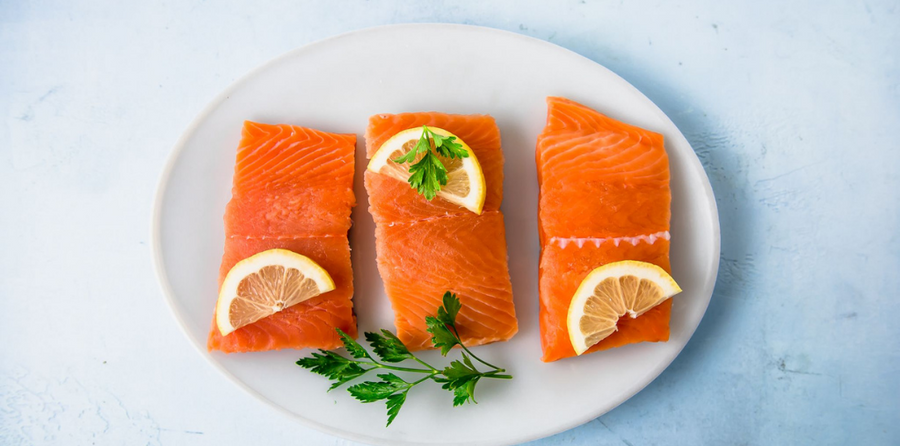
Eat wild Alaska Seafood and live longer.
It might seem like an outlandish claim that we’ve found the fountain of youth, but more evidence keeps showing up that that eating seafood might not only improve longevity, but the quality of life in old age.
A recent study revealed that higher levels of Omega-3 fatty acids found in cold water fish are associated with a lower risk of unhealthy aging (longer version of the study here).
Another study, which looked at 2700 generally healthy American adults and how the Omega-3s in their blood affected their lives, showed that older adults with higher levels of omega-3s have a 27% lower risk of prematurely dying from all causes and a 35% lower risk of dying from heart disease.
Those who have the most heart-healthy Omega-3s in their diets live, on average, 2.2 years longer than those with the least.
Seafood and aging
It’s not just living longer on average that makes seafood special, incorporating more seafood as part of our diets is also associated with healthier aging. A study of over 2,500 adults between 1992 and 2015 found that omega-3 polyunsaturated fatty acids present in seafood reduce the risk of unhealthy aging. The study found, after correcting for other factors such as age, sex, and race, that adults with higher levels of EPA and DPA had a better chance of healthy aging. Healthy aging is defined as a living a meaningful lifespan without chronic diseases.
The study found, after correcting for other factors such as age, sex, and race, that adults with higher levels of EPA and DPA had a better chance of healthy aging. Participants with the highest level of omega-3s present had an 18 percent lower risk of unhealthy aging. Participants with the highest levels of EPA and DPA, the omega-3s commonly found in seafood, had the best results: Those with high levels of EPA had a 24 percent lower risk of unhealthy aging, and those with DPA had an 18 percent lower risk of unhealthy aging.
Seafood and longevity
“We found that older adults who had higher levels of omega 3 from seafood were more likely to live longer and healthier lives,” lead study author Heidi Lai of the Friedman School of Nutrition Science and Policy at Tufts University in Boston told Reuters. “These findings support current national dietary guidelines to consume more seafood.”
Based on these studies, nutritionists and health professionals are coalescing around the following recommendations:
- Eating fish two or three times per week can reduce risk of chronic disease.
- The lean protein and omega-3s in wild Alaska seafood make it a smart, nutritious choice.
- Eating seafood is good for your heart.
- Eating seafood not only lowers blood pressure, but can help potentially reducing risk of stroke, depression, Alzheimer’s, and other chronic diseases.
The healthy omega-3 fats, lean protein, vitamin D, and selenium in fish prove so powerful that both the Dietary Guidelines for Americans and the American Heart Association recommend eating seafood at least two times a week.
Seafood and heart health
Heart disease causes one in four deaths in the United States, making it the leading cause of death for men and women in the United States. The good news is that heart disease can often be prevented when we make healthy choices. One healthy choice to make is including more seafood in our diets. A number of our customers note that their doctors recommended eating more seafood, leading them to Alaska Gold. With our line-caught wild salmon and sablefish, which are particularly high in Omega-3s, you can’t go wrong. Being line-caught means that the salmon are by definition actively feeding, at their peak, and especially loaded with Omega-3 fatty acids.
Alaska Seafood is also good choice if you are watching salt in your diet. Evidence suggests that eating seafood with omega-3s contributes to lower blood pressure, especially in people with high blood pressure (hypertension) or on weight-loss diets. In addition, omega-3s act on blood vessels and kidneys to help lower blood pressure. Reducing salt while increasing omega-3 intake further lowers blood pressure.
Eat wild Alaska seafood for your heart. Live longer and healthier.

Image courtesy of Alaska Seafood



